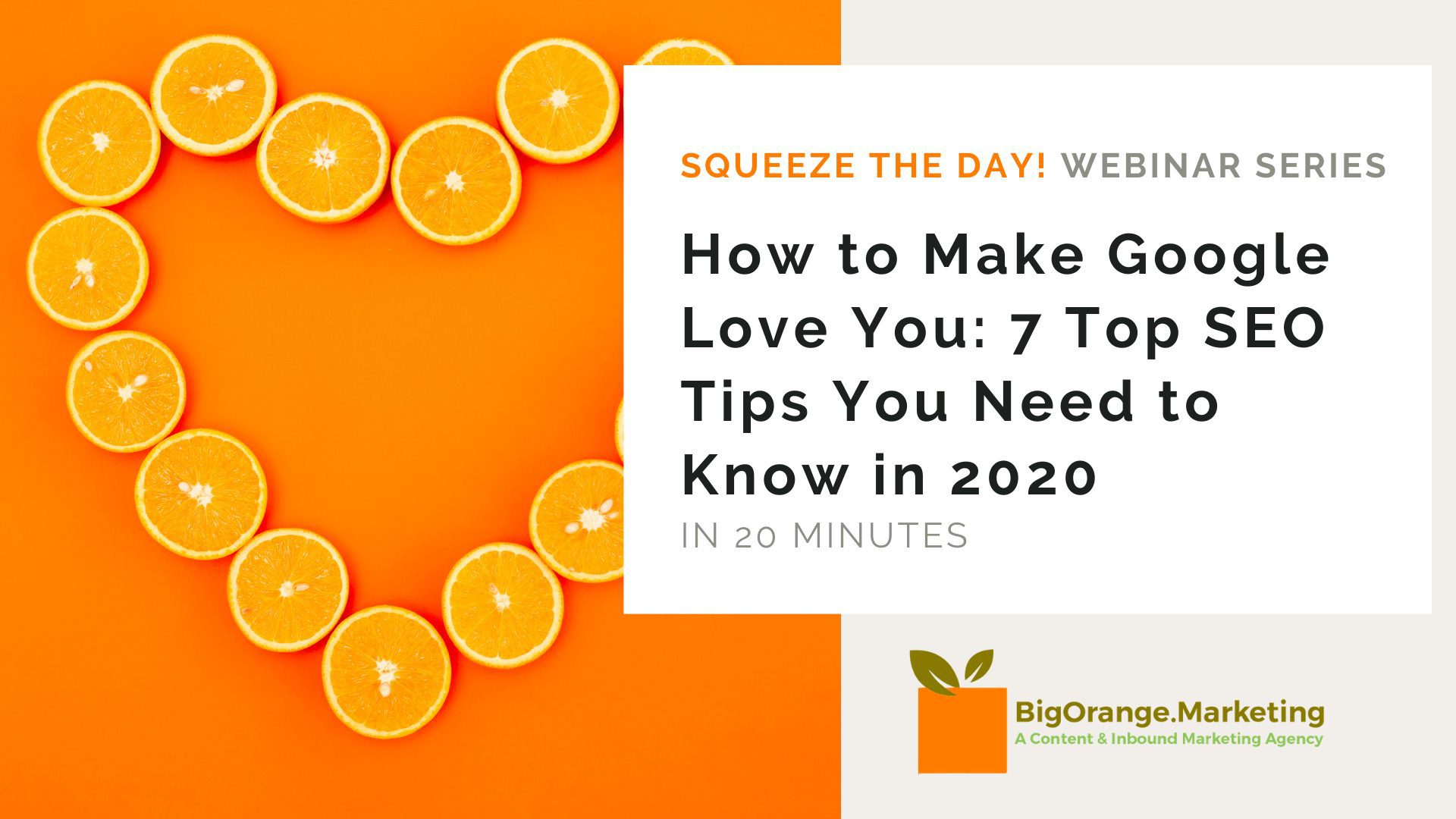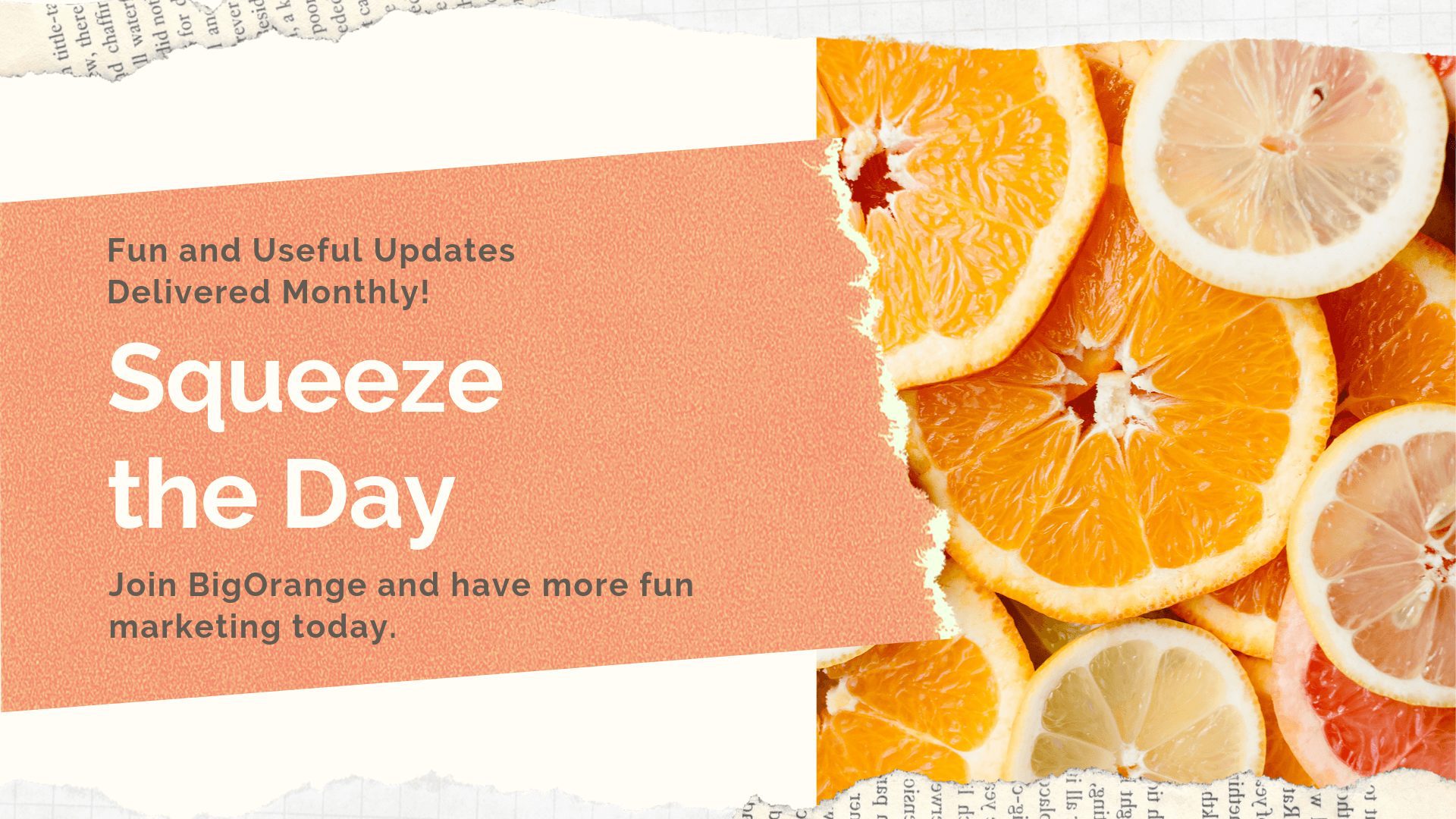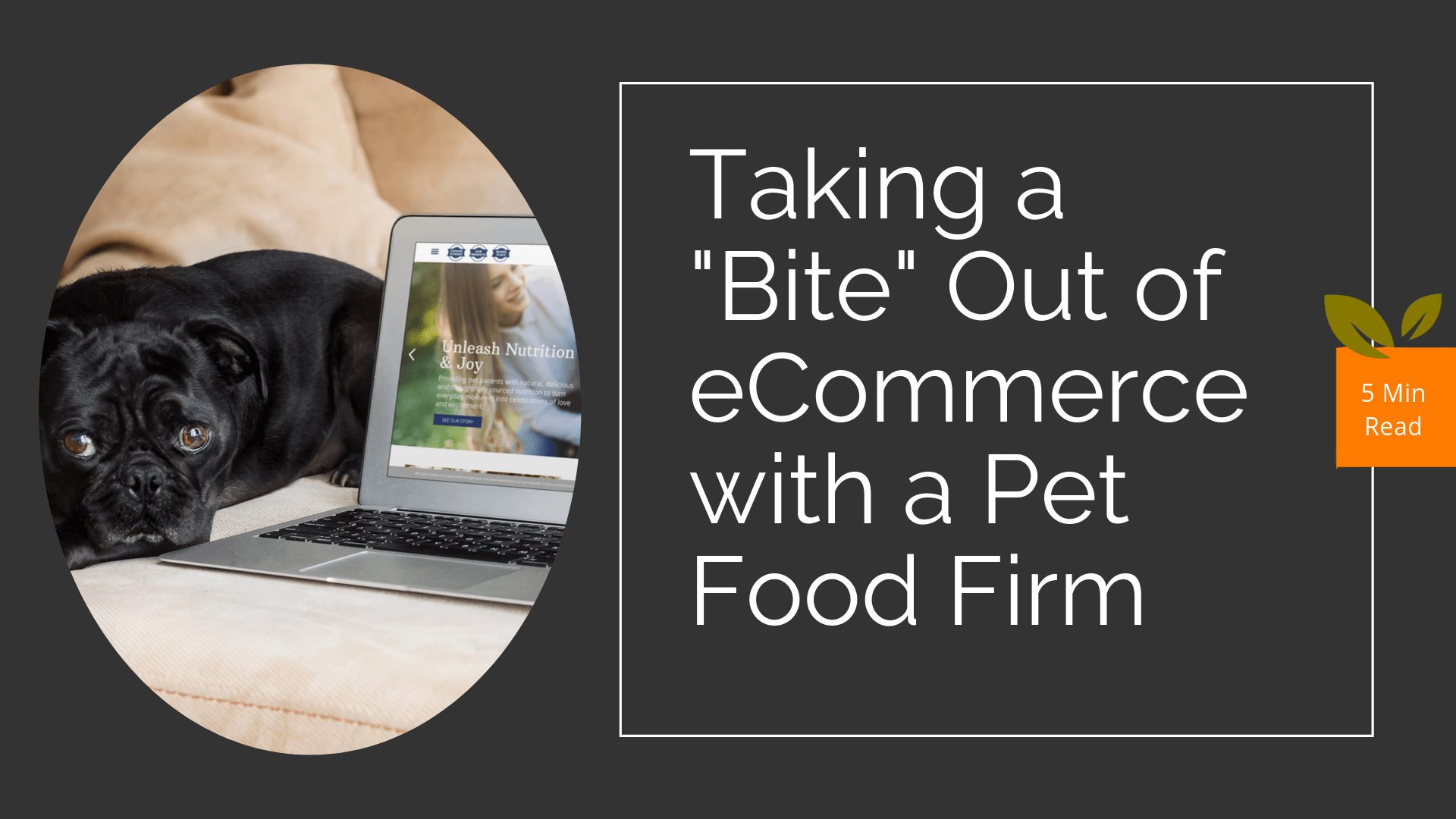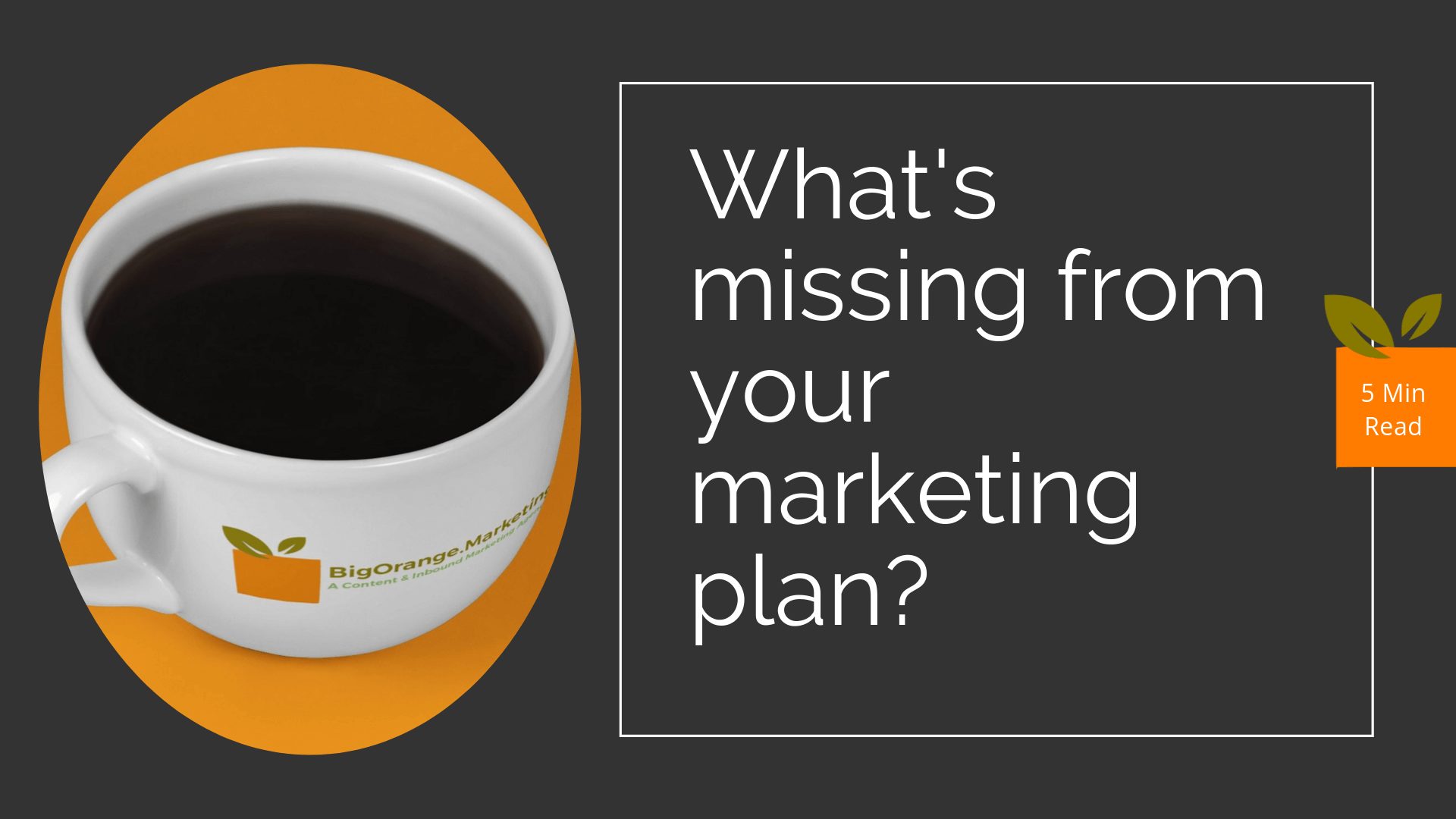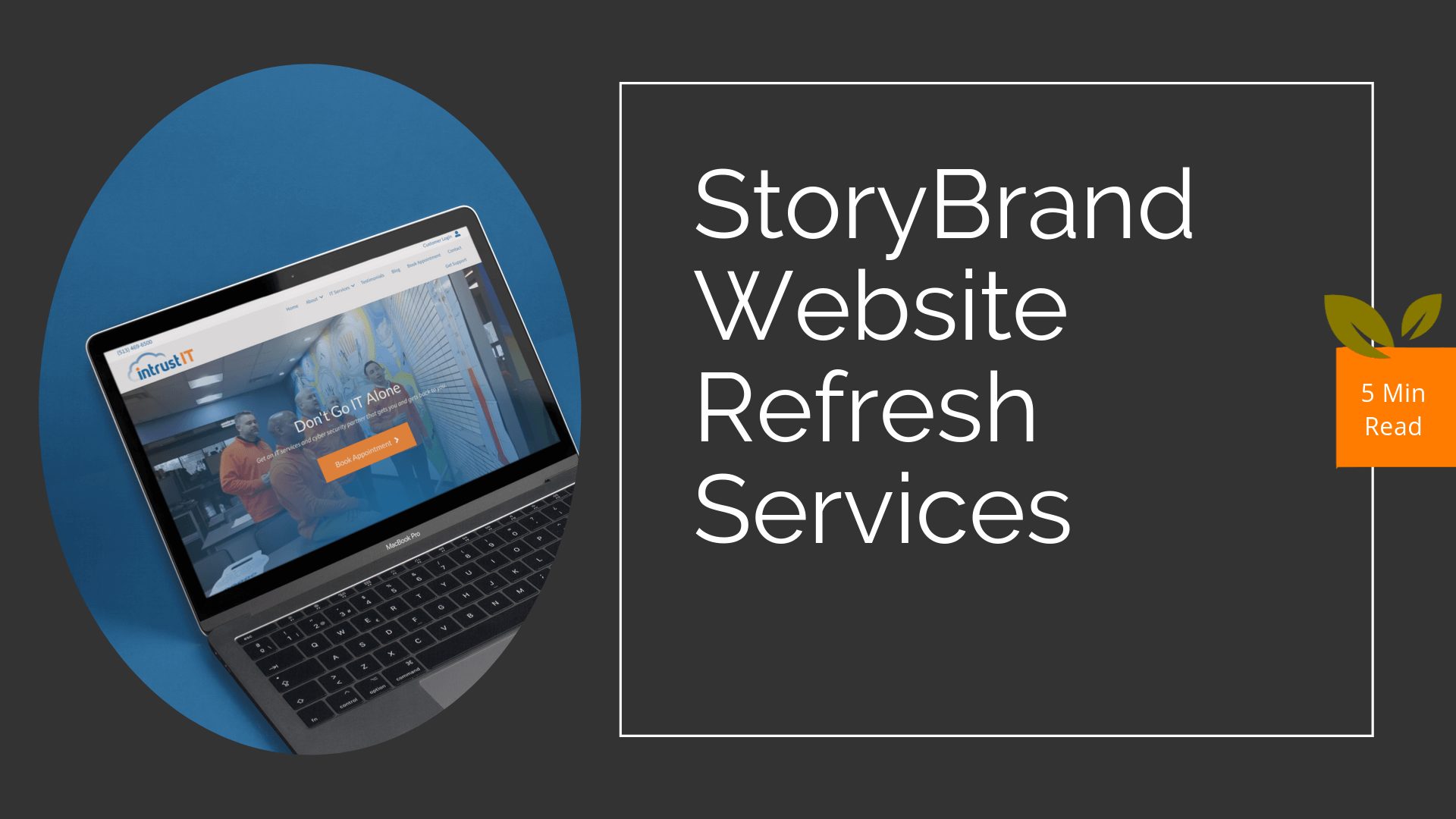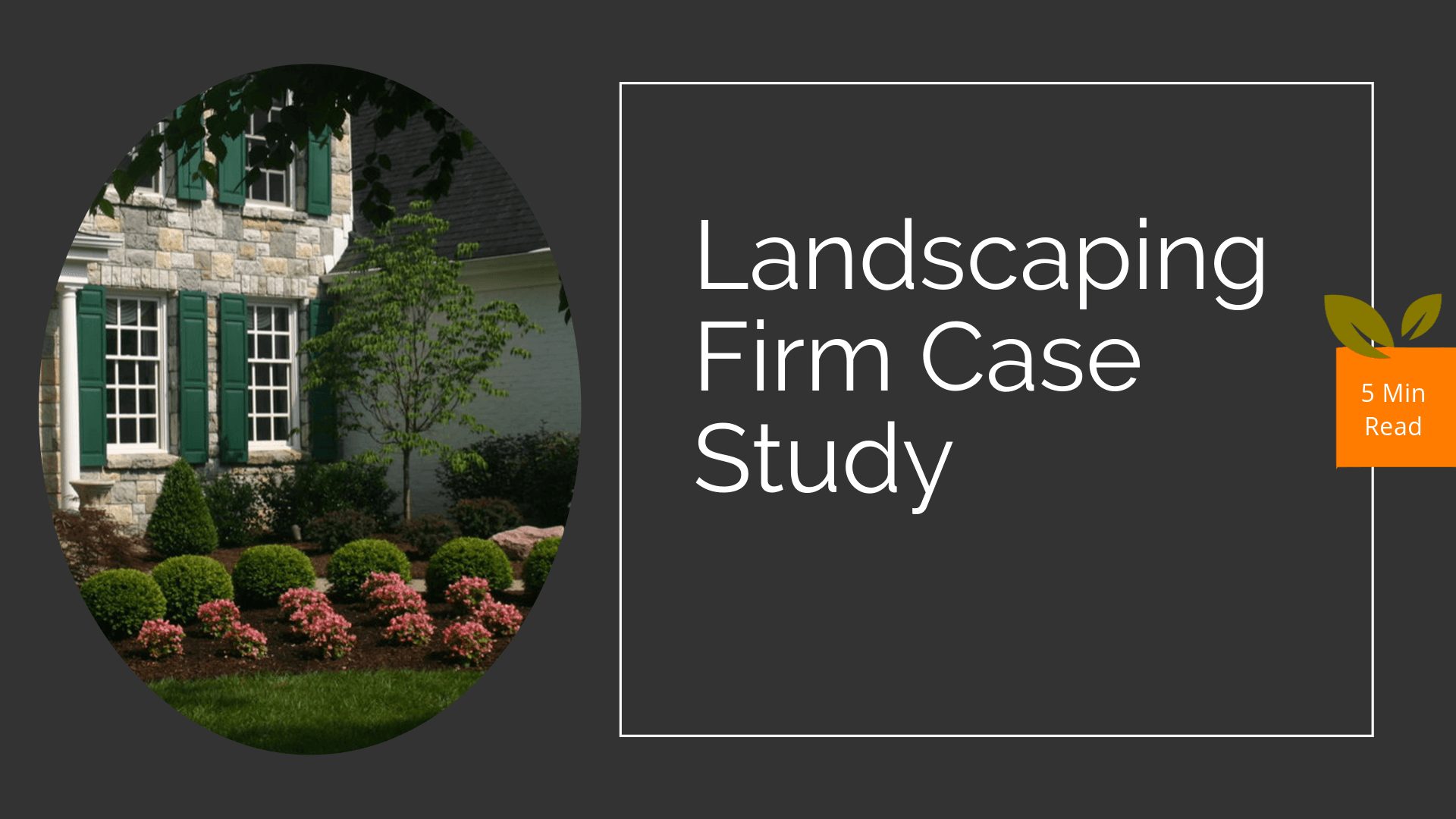Squeeze the Day Webinar Series: How to Make Google Love You: 7 Top SEO Tips You Need to Know in 2020
Webinar Replay: How to Make Google Love You — 7 Top SEO Tips You Need to Know in 2020
Join us on Thursday, June 18th at 12:00PM ET for our Squeeze the Day Webinar Series!
How do I get my website to rank with Google search? Why am I not showing up in searches for my keywords? What is SEO? What matters most to Google right now?
The answer is always evolving and dramatic changes in the last year by Google algorithms may have altered everything you thought you knew about SEO. Meanwhile, both B2B and B2C marketers want more search leads because they carry a much higher chance of conversion than outbound leads.
Well, we’ve got answers to your SEO questions. In this webinar, you’ll learn:
-
How writing for humans trumps writing just to rank
-
The difference between good and bad linking strategies
-
Ongoing content plans and how to make them strategic
-
Google gardening tips for items outside of your website
-
And more marketing ideas
All of this in 20 minutes guaranteed to entertain. Plus, we’ll be giving away a Starbucks gift card to viewers who watch until the end. Sign up to learn top marketing ideas.
Webinar Transcript
Margee Moore: (00:06)
Hello there. This is Margee Moore. We're about to go live in a minute or two. I'm just waiting for it to be noon. Oh great. People are showing up 10 people so far 42 registered. Thank you guys for your time and I'll wait till noon to go live. We've got Janice on the questions. If anyone has a question, thank you for joining us today to wait another minute. Feel free to use the chat window too. So, Hey, this is Margie Moore. Thank you for joining us today for our squeeze, the day webinar, how to make Google love you. Seven top SEO tips. You need to know in 2020, and we are going to deliver this in 20 minutes a little bit about our agenda today. We're going to talk a little bit about who we are, what is SEO and seven top tips you need for now at the very end, we're going to help you with an action strategy, how to prioritize all of the things we've done today.
Margee Moore: (01:13)
After that, we'll have a little closing poll. Please put questions in the chat and it's being recorded. So you can access this later. We'll send it out after the webinar. So who we are, we are big orange marketing. We have 15 years marketing experience. Each send that to message. We've helped dozens of clients win millions in business. We're HubSpot partners and we're storytellers. Here are some of our core team members here. All right. So what is SEO and why do we care? So darn much. Okay. So search engine optimization is the art of ranking high on a search engine in the unpaid section, also known as organic listings, and that is Neil Patel's definition. He is a thought leader in our space. Why we care is today 87% of shoppers start their purchases with search. And that's up from 71% of last year.
Margee Moore: (02:07)
And I think this is even a year old data. So we know that most purchases start with search today. So it's very important to be found when people are looking for what you're selling. There's 2.2 million Google searches every day, and that's just Google. And for people who find you through search and come there organically, or 8.5 times higher chance of conversion than if you were doing an outbound outreach through email or other. Alright, so how do you get ranked today? So the SEO algorithms are constantly changing and then a couple of times a year, Google does these major core updates. The last one, the major core update was I think in may. And so a few more things changed and with those major updates, that's when things are changing. If you learned your SEO knowledge about two years ago, everything, you know, is, is sort of maybe outdated.
Margee Moore: (02:59)
So targeting keywords just for the sake of targeting keywords is no longer what works. But keywords are still very important. So we're going to talk about that to start with Google, some people say, oh, it's such a mystery. So Google does not share their algorithms and how they do the search rankings, but Google does give us quite a few guides to start with. So one of the things we'll talk about is some of the things in the Google guide. So beneficial purpose is a concept as well as eat. So these are two concepts to keep in mind as we go through all of our tips today. So beneficial purpose means websites and pages should be created to help users to help create users, you know, answer their challenges, find what they need. This is directly from Google.
Margee Moore: (03:43)
Then their concept of eat is what they tell eat is what they're trying to weigh your website for. So does it show expertise are the creators of the content experts? Do they have credentials to back it up and are those credentials somewhere on that website that, where they are sharing the content? Is there authoritativeness, does that mean having, do you have generally recognized authority? One of the ways Google can see that is links back to your site and things like that. Trustworthiness is the content you're creating honest, true and accurate information. And is it free of mistakes? So a very easy thing for Google to see if you don't have correct is if you have this spelling. So if you have grammatical errors those are the things that Google is weighing it on. So it is not magic. There's a lot we can do to get ranked for, for SEO.
Margee Moore: (04:36)
So here we go without further ado into our seven tips. So tip, do you see tip number one, you have to be credible. Does your site build credibility? Does it show your authentic team and does it build a relationship with the people who you are targeting? Does it feel professional? Are you overusing stock images? Could you possibly go do a photo shoot of your team to, to stop using so much stock images? Are your team members on your website and does that include bio's of those team members with their backgrounds and some of their credentials? That would be a good idea. Is it clear what you're selling? So the caveman is here to tell you the caveman tests from StoryBrand if a caveman looked at your website, could he tell what you're selling? Could he tell 'em how it benefits him and how does he buy it?
Margee Moore: (05:24)
So that's the caveman test it's called the grit test. And then is your, your website and your content free of errors. So that's credibility. So a little bit about that. Authoritativeness here's a, an example from the Patel, every particular piece of content he has on his website, there is often this bio of him to the right, you know, sharing his credentials and the fact that he spent in the wall street journal. So just a great example here of credibility building. All right. Do you see tip number two, right. For people, right. For humans, not for search engines, answer user's questions to help people find what they're looking for. You. Simple language, short sentences sentences should not be more than 20 words. Your website should clearly show what you do and how, how you solve your target audiences, challenges and their pain points. You should show that you recognize what their pain points are. Don't use jargon. A good way to, to, to get to some good content is ask your sales team about common objections, why people don't choose you or common pain points people have before they come and look for what you are selling. You use a Q and a format. So with voice search today it's important to have some blog posts and things like that. They're in a QA format, like what is a finance?
Margee Moore: (06:46)
Our financial industries have a series of questions all related to a single topic. QA style works well. I'm not saying QA style on your homepage, but some blog content we using QA style for voice search is a very good idea. Then also another thing for people is provide conversion paths on every page and every blog posts that gets people to stay on your site longer. And it also gives them a way to interact with you. All right. So do you see tip number three, get testy. So if you were looking for easy cheat sheets, SEO tips, where we tell you something like the secret is put Brittany Spears on every page, then you'll rank, well, this is not the, the webinar for you, but what we will teach you is some good fundamentals and how to put those into action. So do a user experience test of your website and your content.
Margee Moore: (07:39)
So when I say user experience, test, that sounds daunting. But what we really mean is get someone who doesn't know you to interact with your website and observe them while they're in there acting with your website, ask them them questions. Like, can you find our services? What are our services? What are we selling? Could you find our testimonials? Can you see how to interact with us? Can you see how to book a meeting with us? Can you see how to use the contact us, you know, questions like that? Can that person who's looking at it, understand your language? Are you using complex words? Then you can use this tool like user testing.com and you can run a very affordable test with people who are complete strangers to you. And that's great. You don't want to be asking your mom and your kids to, to wreck your website, cause there'll be too nice to you.
Margee Moore: (08:25)
But also in the Google information we mentioned there are 23 questions and we'll share those in a blog post next week when we share this video with you. And those are great questions to ask someone, observing your website. Another important thing about being testy is audit your own content. Look at your Google analytics. Is there content with really high bounce rates that should probably be rewritten to answer user's questions or are their blog posts with zero visits? Those should probably be removed. Here is a snippet of the, the, what I'm calling the 23 questions from the Google webmaster. One one I'll just point some of them out. Does the article you're reading provide original content or information, original reporting, original research or original analysis. Does this provide value as pro versus something else that you would find on the edge on the H on the web?
Margee Moore: (09:25)
And is there quality control done to, to make sure there are no errors? So this is just a sample of those questions and we'll share those later, but it's a lot of food for thought when you're creating content, when you're building a website, when you're trying to get ranked for search, so juicy tip number four, chip away, so create an SEO strategy, and I'm going to tell you how to do that. So and then chip away optimizing your core pages at a, at a rate of three to four a week. Why not? So start with keyword research. So use a tool like keyword planner, which is in your Google ads. You can get to it there research your top terms and you know, download and build a list. Also you can research your competitors there. Some of your, your larger competitors will have already done a lot of keyword work, and you can copy what they've already done.
Margee Moore: (10:16)
Cause you could see it build that keyword list and then identify which of your core pages like your services pages should win for each of those keywords you came up with and then, you know, list out your core pages and chip away at three pages this week. Elise be sure to not use the exact same keyword on more than one page. And then another big tip is use freebies, like Yoast up the plugin on WordPress to guide you SEO updates. And I'll show you why you need to use Yoast because it's free. But also every piece of content, when you load the plugin, every piece of content you're looking at Yosef is giving you a cheat sheet of what you need to do. So this example is saying, you know, this focus keyword isn't on the entitle the meta-description hasn't been filled in, or, or you never want to duplicate meta description either. You haven't used your, your focus keyword in some headings, so here's the guide it's free, it's available, use it and follow it and it will help you learn SEO and get it. All right.
Speaker 2: (11:27)
We had a question. Why should we avoid using the same keyword?
Margee Moore: (11:31)
Oh, so it comes to this changed about a couple of years ago cornerstone content. So you have your core pages should be certain words like cybersecurity disaster recovery, and then you don't want to confuse Google and make a blog post that's, plain old cybersecurity. Cause then Google is, I don't know which one's the core paid. So you, your core pages want to use your, your highest level words, and then you want to use your longer tail words in a blog post, like cybersecurity for small business. And that cybersecurity for small business should link back up to your core one. So you never want more than one thing to have the same term. Does that make sense?
Margee Moore: (12:22)
Okay. Yep. That's great. Good, good. Okay. So to thank you for chiming in with that, so juicy tip number five, content, a content strategy. Here's also how you, how you rank well with Google. Google likes to see fresh content all the time. And Google likes to see you have more pages with your keywords on them all the time. So content strategy matters. So get a, create a targeted content plan to get at those longer tail keywords. And that's, that's a longer tail there on the left. And you need to publish consistently if it's once a week. That's great, whatever you can consistently do if it's once a month. Great, just do it consistently. So the way to do this is start by listing your, your target audience, who are you trying to target and think about them? What are their pain points and what are their goals?
Margee Moore: (13:09)
And then think about one of them and say, what questions does this person have? What can you share or what can your team share that they know that answers, that targets questions. So brainstorm five to 10 topics against each target target then match that up with that keyword list you, you made and strategically create a content plan to go after those keywords. Another important point we talked about, we need to be authoritative. And if you have thought leaders in your company, interview those thought leaders and create useful content that share where they, because they'll have unique insights, they'll have great stories. So here's a visual from SWAT systems out in Seattle. Here's them using the author feature really well. This was Dan, he, this is Dan. He created this piece that we were on and it says his number of years in the industry.
Margee Moore: (14:05)
It says his title, which is a system engineer. So great example here of building that authoritativeness. All right. Do you see tip number six, speed matters. Speed matters more than ever. So remove anything that is slowing down your website. You can run some free reports. I like Google search paid Google page speed insights. That's exactly how you find it. Google page speed insights, search that and that will give you a list of what you need to do in order to speed up your website, compress those larger images and reload them. You only want to load an image as large as you need. It never load it larger than you need it. And then also leverage browser caching, and then there's a lot more things you can do for speed. That's probably a webinar all to itself. So, so, all right, we'll go onto juicy juicy tip number seven, give link juice.
Margee Moore: (15:03)
So links, as we mentioned matter, and links continue to matter more and more. So you want inbound links from credible sources, but where you start is you're going to link out. So link out to good content and then request links back to your content. So, so linking out to those credible sources, you know, boost your content, do it moderation though. A pillar post is an idea that is, will do really well for you in that, that question and answer format. I talked about, put a, put several links to credible sources. You know, everything you need to know about cybersecurity in a long form post that's a pillar content. That's a very good for links out. And then that gets you links back. A neat way to obtain inbound links is through guest posts on other blogs, again in moderation and never put duplicate content here on your website and do the exact same thing on another website.
Margee Moore: (15:58)
You want to change up that sentence structure and never be exactly the same content. Another big idea, something we like to do is a pro spotlight where you're profiling people in your industry, if that makes sense. And you want to stay in your industry, you don't want to be profiling something unrelated to what you do. Or could you do a customer series interview your customers or companies you've partnered with go through a series of, you know, spotlight on our customers. All right. So here's a visual of a pro spotlight series. We created for handling custom building group and in their industry, when you build a custom home, you know, retractable screens, custom kitchens tiles and flooring. So it makes sense cause it's links in and out from, from within their industry. And you can see that for example, got a lot of great shares because you're leveraging their social media as well as your social media.
Margee Moore: (16:53)
So it's a really win-win all right, so, so juicy tip number eight out of seven, this is your bonus tip. So here's a bunch of nuts and bolts, some things that are really basic that you can take care of, move a it. So set up Google search console, be sure to do that. Make sure you set up your Google analytics submit your site map to Google removal, duplicate content make sure your photos use keywords for the page that you're trying for the keywords for the page. You're trying to optimize like your page. You're trying to optimize for cybersecurity for small businesses. Make sure that image on that page has cybersecurity for small businesses in it somehow. And then use hyphens between the words your, your your meta description. It should be populated for every page. And it should be unique.
Margee Moore: (17:44)
Never have the same meta description on more than one page right. Readable URL. So the word green dress, if you're doing a page for green dress, don't just put green dress together. Google can't read that, but green hyphen dress in, in the URL or green dress for sale Cincinnati, that's a readable URL. So that's good. Make them readable. They'll put numbers and crazy stuff in there. Just words and separated by hyphens and then use very important offsite SEO. We were talking a lot about on-site on page SEO. You manage your Google reviews to increase and try to get more Google reviews regularly. Try things like links in your signature line. Put a link to it on your testimonial page, put a link to Google your Google review on your testimonial page. That's a good strategy. Try something like postcards.
Margee Moore: (18:33)
I'll show you a great example. Sailors landscaping here in Cincinnati. They are doing a competition, so they created a postcard and the person who gets the most mentions is going to win a watch or maybe it's sunglasses. I'm not sure, but they're competing with each other and they tell the customers, Hey, if you mentioned me, I get a point and it's working really well. They're having a lot of fun with it. So they're there. They're just two or three reviews popped up in the last three days. So this is going really well. Here's a visual of how you want to put a link to your Google review on your page so you can always find it. And so your customers can find it. So, all right. So we mentioned a lot of content stuff, a little bit of structure and technical stuff.
Margee Moore: (19:16)
Paula on our team always mentioned that that there's three parts to search engine optimization and Google rankings. There's the content, there's the structure and there's the technical. So if you feel like you're hitting a lot of these content keyword core page stuff, well, a speed is good and you're still not ranking. It may be time for an SEO audit to figure out if something else is going wrong. Perhaps there's a technical issue. So just want to point that out. So thank you for staying with me here is our action plan. So what we're going to do now is we're going to go back through all of the ideas and I'd like to you to get out a piece of paper and just jot some things that you might want to do. So when we were talking about tip number one, be credible, could you review your website with some fresh eyes?
Margee Moore: (19:57)
Is it professional? Is it mobile friendly? We hardly mentioned mobile friendly because I do feel it's table stakes. Now you, you know, your website is not mobile friendly. If you go to it on your phone and you have to pinch to get out. So that's pretty easy to know. So that's easy to check. So action strategy for item number two, write for humans. Review your home page again. Does it use jargon? Could you get rid of that today? Is it written with a beneficial purpose to help solve your users, challenges test your UX? Just jot, read down right now. Is there someone in a professional group you belong to? We have a group, The Gehring Center here which are Cincinnati peers. Maybe you could ask someone there to look at your website with you and you could observe them chip away at your keywords.
Margee Moore: (20:46)
Here's how you get to the planner visit Google ads, click on the upper, right. I it's a little ranch and then you can drop down and find the keyword planner. It's very fun to use. It's very easy. You can't break it. Just have fun and learn about your keywords. Tip number five and action plan would be sit down right now and brainstorm three ideas for each of your three target personas. What could you answer like could you give, you know, five questions to ask a financial advisor or something like that? All right. Tip number six, speed. Manners. That speed matters. Go look up Google page speed insights. You'll get there. You can put your website in and you will instantly get a report of what to do. All right. So that's part of your action study of two more. But let's get that cat going.
Margee Moore: (21:39)
Oh, no, it was my gift not working. It appears my gifts not working. All right. I'll email that after. So the strategy of give link juice is there a pro spotlight series you could do in your area? So think about that or is there a customer interview series you could start some nuts and bolts tip. Is there a way you could add a Google review process into your current processes? Is there something you could do, like at a certain point, like when you invoice someone or when your client services team does that final check-in, could they send a Google review or ask at the end of that conversation? So if you're not sure what to do next we can help you assess these ideas. So the action strategy for today, you might've just been jotting a few things it's probably too much to do.
Margee Moore: (22:32)
Look, choose one and circle one. And that would be an action strategy tactic you could get at this week. Okay. Then we're going to keep it ongoing. All right. So we are to our poll. So, you know, in line with what Google teaches us, we're going to actually do some research here. So here's your poll, and this is how we're going to give away the gift card today. So tell us when you think about SEO and Google rankings is your problem. If you have a problem is your challenge strategy, do you not have a clear SEO strategy if that's your case, but one in there is your challenge content, do you really not have a clear content plan at chips way or keywords, or you just don't have the ability to consistently post do you feel like maybe your problems are speed or technical issues or maybe your website is too old and it wasn't built for speed? Maybe it's something like that. Or do you feel like you're challenged something that might be holding you back? Is your messaging, does your website clearly show who you are authentically, what you do, how you help your users and how to work with you, or if you're just here for the cat names. And again, if it didn't work, you can put five in. So put a number in chat, we'll have your name. And then we'll put that out in a randomizer and we'll, and we'll select the winner and we will email the winner.
Margee Moore: (23:54)
All right. And we are also going to set a blog post after to share all that. So here's my, my sales part here. If you work with us, big orange marketing, you get a team of experts. We we are writers, we're very technical experts and we're also marketing experts and we work very hard to keep our skills, top notch. You get small firm attention complete management of your projects. We do like to take marketing off of your plate. When you work with us, you get seasoned pros son, some firms you get sold in by the team, but then junior people deliver, but we are all pros here. We're affordable. We're in the Midwest. We keep our prices affordable and we deliver what others promise. All right. So are there any questions? Oh, I see a lot of ones. Thank you guys for answering the quiz and thank you guys for attending. Oh, Hey Monica. Thank you for the compliment. Yes, yes. Could you go
Speaker 2: (24:55)
Back to your survey slides so people could see that again? Sure. And then Ann is wondering if there are any keywords that are just dead.
Margee Moore: (25:12)
It really depends on your industry. The keyword planner would show you show you what's working in your industry. And what are the current prices that people who are using paid search are paying to win on those keywords? Keyword planner would probably have those answers for you. Any other questions, Janice? Right now? Cool. Great. Well, thank you guys for attending today. This was a lot of fun. I hope this was helpful to your marketing strategy. And also in your chat, if you want to put anything about what you'd like us to cover next, we still have ideas from last time of things to cover next. Thank you guys for attending. I am. Okay, Karen. Very nice. Thank you guys.
